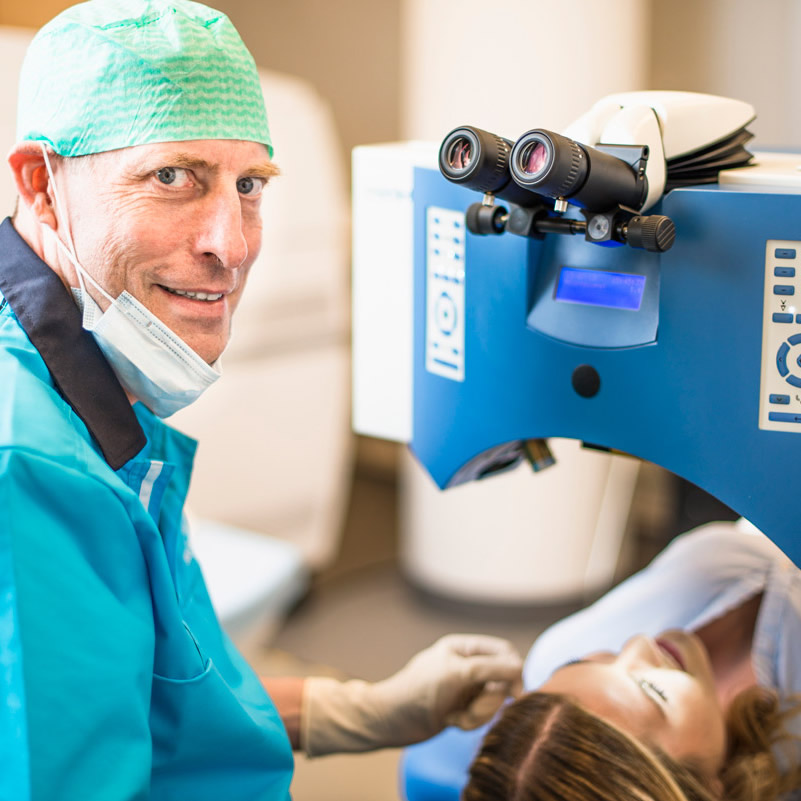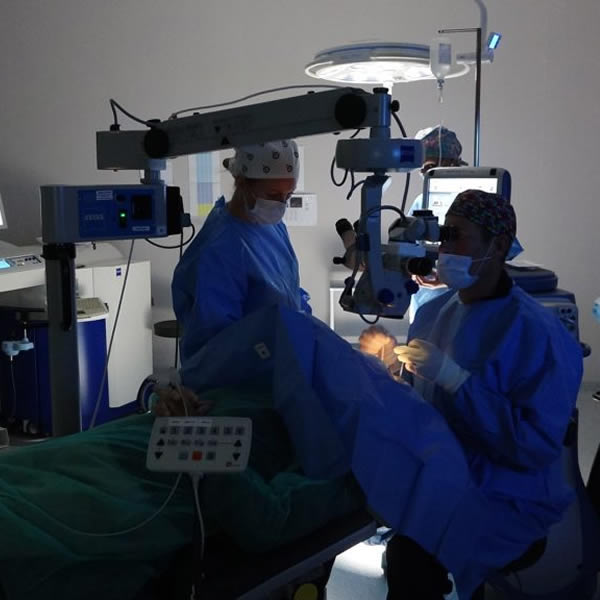
Eye surgery In Fuengirola, Malaga
Eye surgery
In Sol Eyes clinic we utilize the reliable methods of eye laser surgery as PRK and LASIK together with the experience gained from tens of thousands of surgeries in order to treat your eyes in the most beneficial way.
Myopia (nearsightedness) and mild hyperopia (farsightedness) can be treated effectively with refractive surgery. The refractive errors to be corrected are measured by an eye specialist, and at the same appointment the specialist will perform the necessary cornea measurements.
The errors that can be corrected are -0.50 – -12.0 in myopia, 0.5D-5.0D in astigmatism and 0 – +3.0D in hyperopia. The errors greater than those are usually corrected by lens surgery. This can be clarified in an appointment.




